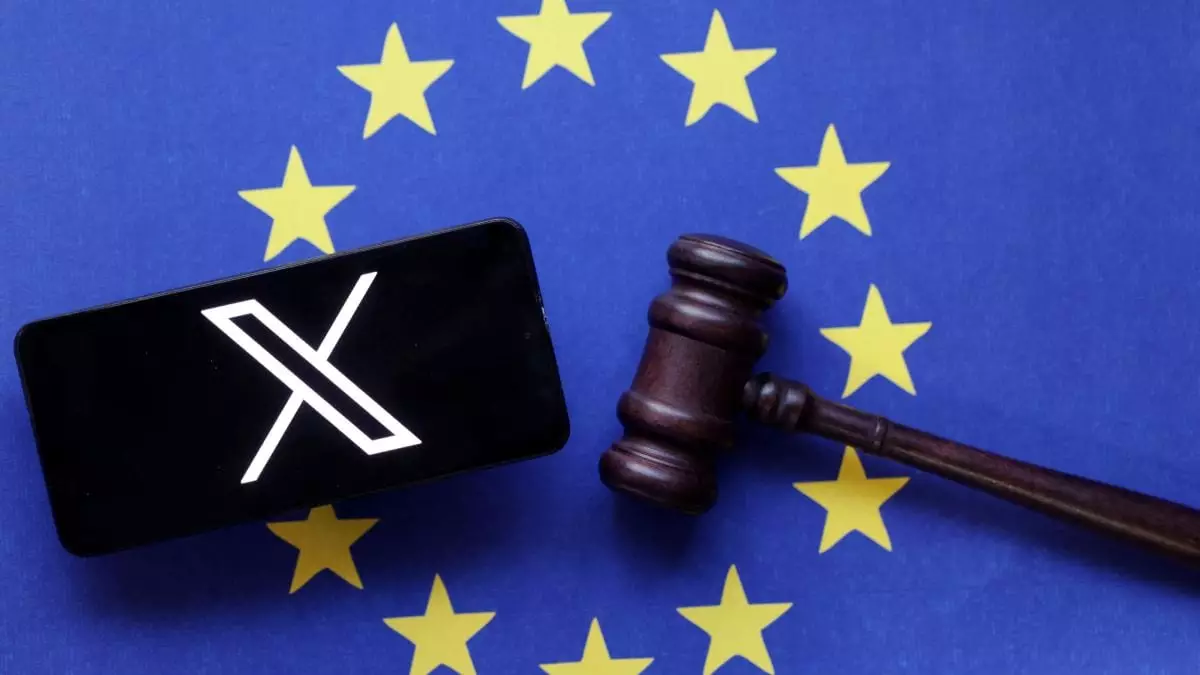In an increasingly digital world, the regulation of online platforms has emerged as a significant challenge for governments and institutions. The European Union (EU), determined to uphold digital accountability, has initiated an investigation into Elon Musk’s social media platform, X. This assessment stems from growing concerns over content moderation practices and compliance with the EU’s Digital Services Act (DSA). Launched in December 2023, this inquiry underscores the tensions between powerful tech entities and stringent regulatory frameworks aimed at safeguarding users from misinformation and harmful content.
As the digital realm expands, the need for robust content moderation becomes ever more pressing. The DSA, established to provide a unified regulatory framework for online platforms, obligates those companies to act against illegal content and disinformation effectively. Musk’s X finds itself in the crosshairs of this initiative amidst accusations of neglecting these responsibilities. Henna Virkkunen, the European Commission’s Executive Vice President, has been vocal about the ongoing probe, indicating that the EU is scrutinizing the scope of X’s compliance with the DSA.
The timing of the EU’s investigation aligns with a politically charged environment. Musk, now intertwined with the political fabric of the United States following his support for President-elect Donald Trump, has been highlighted for endorsing controversial political figures. This involvement raises ethical questions regarding the role of social media in shaping political discourse, particularly in light of allegations that X may have provided undue advantages to candidates like Alice Weidel from the Alternative for Germany party.
The EU’s probe also examines potential biases in the promotion of such political content. Specifically, a recent conversation between Musk and Weidel, broadcast on X, has drawn attention for the possibility that it could have been manipulated to favor a political agenda. Such allegations not only reflect the pressing concerns about misinformation but also highlight the potential ramifications for democratic processes in EU member states.
The desire of the EU to regulate foreign tech giants encounters a complex web of geopolitical challenges. Critically, as Western nations grapple with foreign electoral interference—evidenced by recent intelligence reports linking Russia to election meddling in Romania—the stakes have never been higher. The EU’s investigation into TikTok similarly illustrates the bloc’s resolve to scrutinize foreign platforms and their influence on local politics.
However, the potential for backlash from the U.S., particularly under Trump’s impending administration, complicates the regulatory landscape. Trump’s affiliation with tech leaders might suggest that a concerted effort is underway to push back against EU regulations perceived as overly stringent or unjust. This dynamic could lead to a clash between European regulatory ambitions and American corporate interests, reminiscent of trade disputes fueled by tariffs and international economic policies.
Additionally, Musk’s cavalier approach to addressing EU regulations—promising legal challenges against unfavorable decisions—exemplifies a broader trend among Big Tech executives, who are increasingly unwilling to cede ground to regulation that they believe hinders innovation and growth. Mark Zuckerberg’s recent comments on the issue further reinforce the notion that U.S. tech leaders expect their government to advocate for their interests internationally.
As the EU plows ahead with its investigation into X, the outcome will likely ripple beyond the immediate scope of Musk’s platform. The implications for content moderation and accountability—central to maintaining the integrity of democratic processes—will serve as a litmus test for how global digital giants operate in an era of escalating scrutiny.
The outcome of this inquiry may lay the groundwork for how online platforms adapt to varying regulatory landscapes, potentially resulting in more responsible content governance. The tension between safeguarding users and allowing freedom of speech may redefine online interaction norms, as platforms grapple with the weight of compliance versus the cost of doing business in diverse regulatory environments.
Ultimately, the ongoing investigation into X serves as a pivotal moment for both the EU and Elon Musk. It highlights the critical balance that must be achieved between innovation, regulation, and the fundamental democratic values that underpin digital communication in the modern era.

